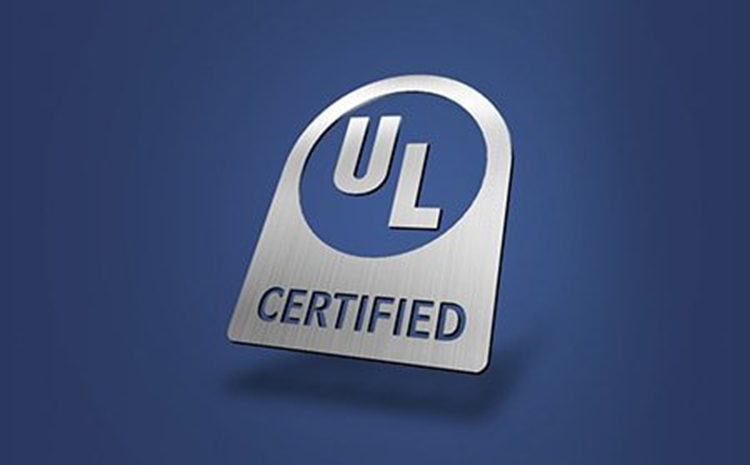
Overview of UL Organization
UL, short for Underwriters Laboratories, is a global authority in UL safety certification, headquartered in Northbrook, Illinois, USA. Since its founding in 1894, UL has grown from testing electrical and fire products to developing over 1,500 standards covering diverse industries. Today, three divisions — UL Research Institutes, UL Standards & Engagement, and UL Solutions — provide safety science, testing, and certification worldwide.
History and Development of UL
William Henry Merrill, an MIT-trained engineer, founded UL in 1894 after recognizing the fire risks from electricity. Early testing included fire extinguishers, wiring, and flammable products. By the 20th century, UL expanded into household appliances, televisions, computers, and industrial systems, establishing itself as the global leader in UL safety certification.
UL Safety Certification and Standards
UL certification spans a broad spectrum of products and industries:
1. Sustainability Standards
- UL 106: Sustainability standard for lighting (under development).
- UL 110: Sustainability standard for mobile phones.
2. Electrical & Electronic Products
Covers safety requirements for switchgear, household appliances, IT systems, and electronics.
- UL 50, UL 50E: Electrical enclosures.
- UL 153: Portable lamps.
- UL 197: Commercial electric cooking appliances.
- UL 410: Slip-resistant floor materials.
- UL 651: Rigid PVC conduit and fittings.
- UL 796: Printed wiring boards.
- UL 962B: Display power distribution equipment.
- UL 1598: Luminaires.
- UL 1642: Lithium batteries.
- UL 1653: Nonmetallic conduit.
- UL 1995: Heating and cooling equipment.
- UL 60335 series: Household electrical appliances.
- UL 62368-1: Audio/video, IT and communication equipment.
3. Life Safety Standards
Focus on fire alarms, smoke detection, warning signals, and personal protection.
- UL 217: Smoke alarms.
- UL 268: Smoke detectors.
- UL 752: Bullet-resisting materials.
- UL 1971: Signaling devices for the hearing impaired.
4. Building Products
- UL 10A: Tin-clad fire doors.
- UL 20: General-use snap switches.
- UL 486E: Wire connectors.
- UL 1256: Fire test of roof and floor assemblies.
5. Industrial Control Equipment
- UL 508: Industrial control equipment (replaced by UL 60947-4-1).
- UL 508A: Industrial control panels.
- UL 508C → UL 61800-5-1: Power conversion equipment.
6. Plastic Materials
Evaluate flame resistance, heat resistance, and durability of polymers.
- UL 94: Flammability tests.
- UL 746 series: Properties of polymeric materials.
7. Wire and Cable Standards
- UL 62: Flexible cords and cables.
- UL 817: Cord sets and power-supply cords
- UL 2556: Wire and cable test methods.
8. Alarm Systems, Installation & Monitoring
Covers burglar alarms, fire alarms, and cybersecurity.
- UL 294: Access control equipment.
- UL 464: Audible signal devices.
- UL 681: Installation and classification of burglar and holdup alarm systems.
- UL 827: Central station services.
- UL 2900 series: Cybersecurity for connected products.
9. Photovoltaic and Renewable Energy Standards
- UL 1703: Flat-plate photovoltaic modules.
- UL 1741: Inverters, converters, controllers for distributed generation.
- UL 2703: Mounting systems for PV modules.
UL Solutions – Expanding Beyond Electrical Safety
Over the decades, UL has moved into food safety, water quality, sustainability, and renewable energy. In 2012, it became UL LLC. In 2022, UL restructured into three organizations, and by 2024, UL Solutions achieved a USD 7 billion valuation, showing the global relevance of UL safety certification.
Importance of UL Safety Certification
UL certification is one of the most recognized global safety marks, ensuring regulatory compliance, product reliability, and consumer confidence. It provides access to U.S., EU, and international markets, while helping manufacturers demonstrate commitment to quality and risk reduction.
Cat Van Loi – Vietnam’s UL-Certified Manufacturer
In Vietnam, Cat Van Loi Manufacturing JSC has achieved UL 797 certification for EMT steel conduits and NEMA BI 50015 certification for wire mesh cable trays. These international milestones reflect the company’s dedication to safety, innovation, and global export standards. Cat Van Loi’s success with UL safety certification highlights Vietnam’s growing presence in international MEP materials markets.



